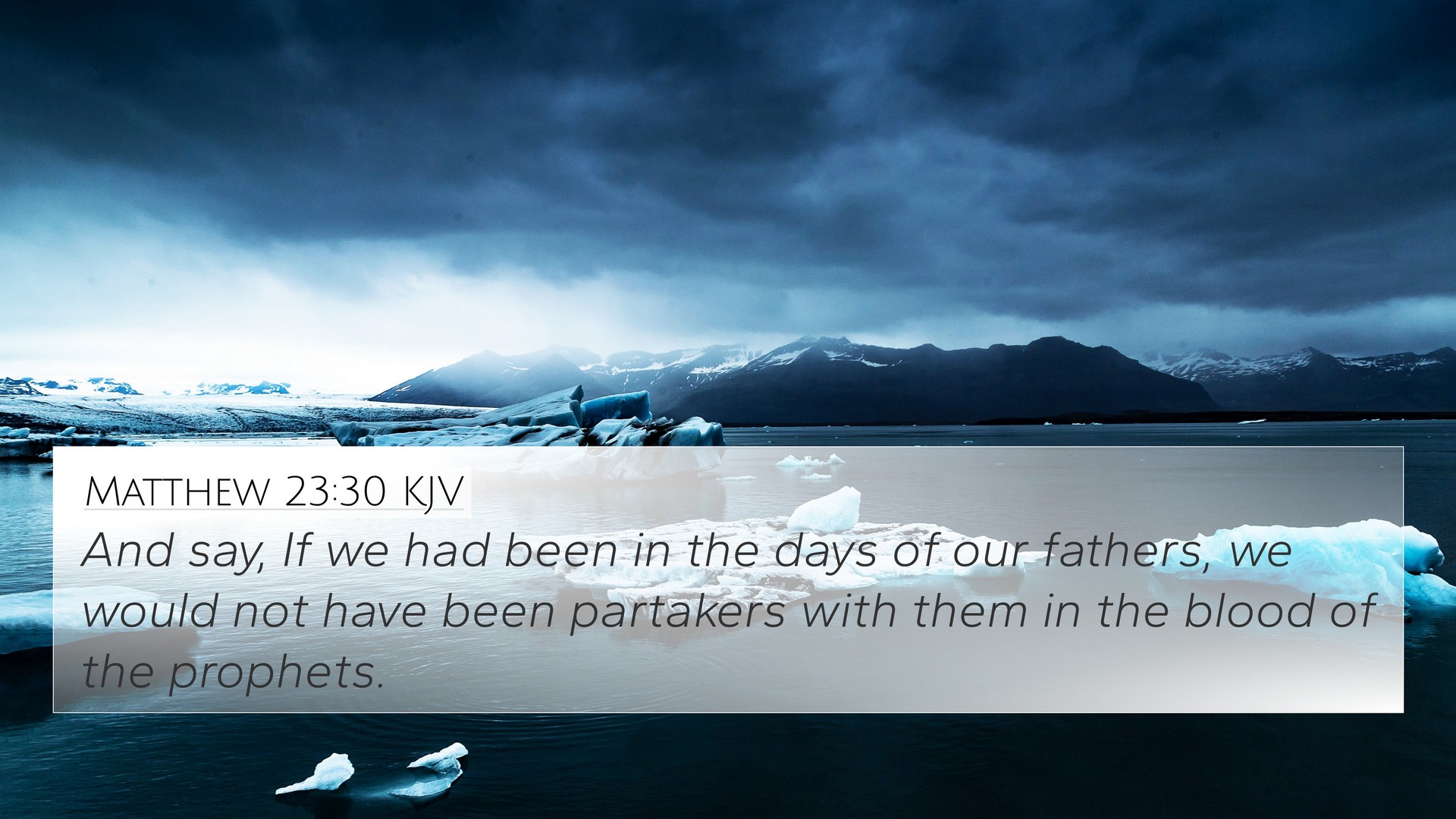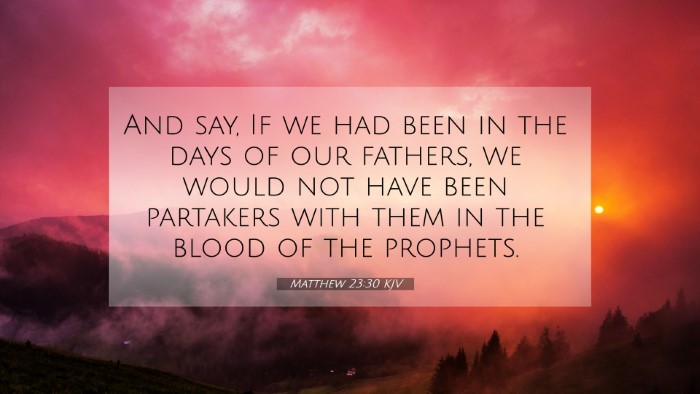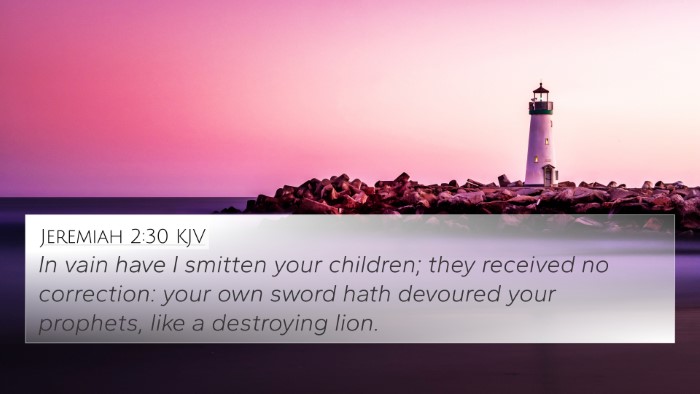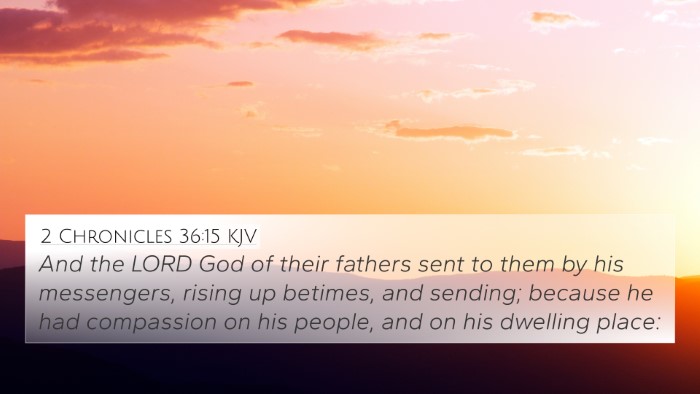Understanding Matthew 23:30
Bible Verse: Matthew 23:30 - "And say, If we had been in the days of our fathers, we would not have been partakers with them in the blood of the prophets."
Summary of the Verse Meaning
This verse captures a critical moment in Jesus' interaction with the religious leaders, where they express their false self-righteousness by claiming that had they lived during the time of the prophets, they would not have joined in the persecution of God's messengers. This position reveals a profound hypocrisy and denial of their own culpability in rejecting God’s word.
Commentary Insights
Matthew Henry Commentary
Matthew Henry emphasizes that the scribes and Pharisees were blatantly ignorant of their ancestors’ actions and their present similar attitudes. He points out the irony in their claim, as they were guilty of the same disposition, as evidenced in their opposition to Jesus Himself. He highlights that they should have been penitent instead of boastful about their supposed moral superiority.
Albert Barnes Commentary
Barnes interprets this verse as a stark contrast between the men of old, who actually persecuted the prophets, and the modern-day Pharisees who fail to acknowledge this reality. He notes the danger of self-deception, where people fail to recognize their own participation in sin while criticizing past generations
Adam Clarke Commentary
Clarke provides a thorough examination of the historical context of this verse. He discusses how these religious leaders exhibit a peculiar blindness, thinking they can separate themselves from their forefathers’ wrongdoing. Clarke underscores the significance of recognizing historical patterns of rejection against God’s messengers as a consistent theme throughout scripture.
Thematic Connections
- Hypocrisy: This verse exemplifies the theme of hypocrisy among religious leaders, which is critiqued throughout the Gospels.
- Rejection of Prophets: The need to recognize past sins prepares the way for understanding how current generations may be repeating these patterns.
- Self-Deception: The danger of claiming moral high ground based on historical perspectives while engaging in similar behavior in the present is a pivotal lesson.
Cross-References Related to Matthew 23:30
- Matthew 5:12: Relates to how prophets were persecuted with an encouragement to rejoice in their faith.
- Luke 11:47: Addresses the similar hypocrisy of building tombs for the prophets while being partakers in the same rejection.
- Acts 7:52: Stephen calls out the leaders for persisting in the same practices as their forefathers.
- Hebrews 11:32-38: Describes the fate of the prophets and their suffering.
- Jeremiah 26:20-23: An account of prophets facing opposition, paralleling the condemnation of their murderers.
- 1 Thessalonians 2:15: Paul describes how the Jews killed the prophets and rejected the messengers of Christ.
- Luke 13:34: Jesus laments over Jerusalem, expressing the ongoing rejection of His invitations by the city's leaders.
Practical Applications
This verse serves as a reminder to believers today about the importance of humility, acknowledgment of one's sins, and the dangers of historical amnesia regarding the faith. It invites us to reflect on how the past informs our present and to strive for authenticity in our faith journey.
How to Study Matthew 23:30 in Depth
For those seeking a deeper understanding and justification of biblical themes and cross-references:
- Utilize a Bible Concordance to find related verses.
- Engage in Cross-reference Bible study that links this verse to other related scriptures.
- Explore Comparative Bible verse analysis to examine similarities.
- Use tools for Bible cross-referencing, such as verse mapping and thematic studies.
Conclusion
Matthew 23:30 challenges us to recognize our own spiritual condition in light of biblical history. By reflecting on how scriptures connect with each other, specifically through the lens of hypocrisy and rejection, we can gain a more profound understanding of our faith and how to live authentically according to God’s word.






